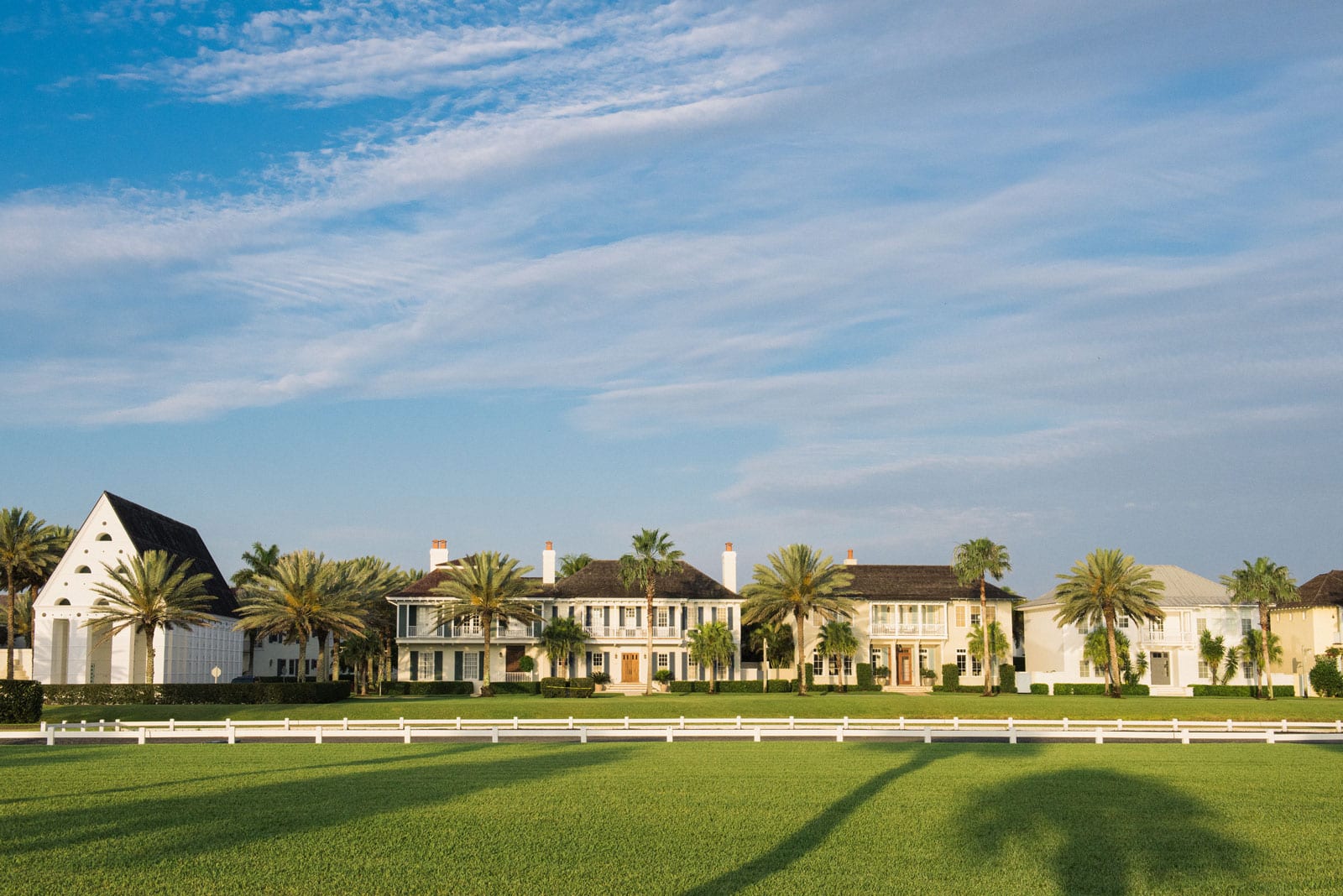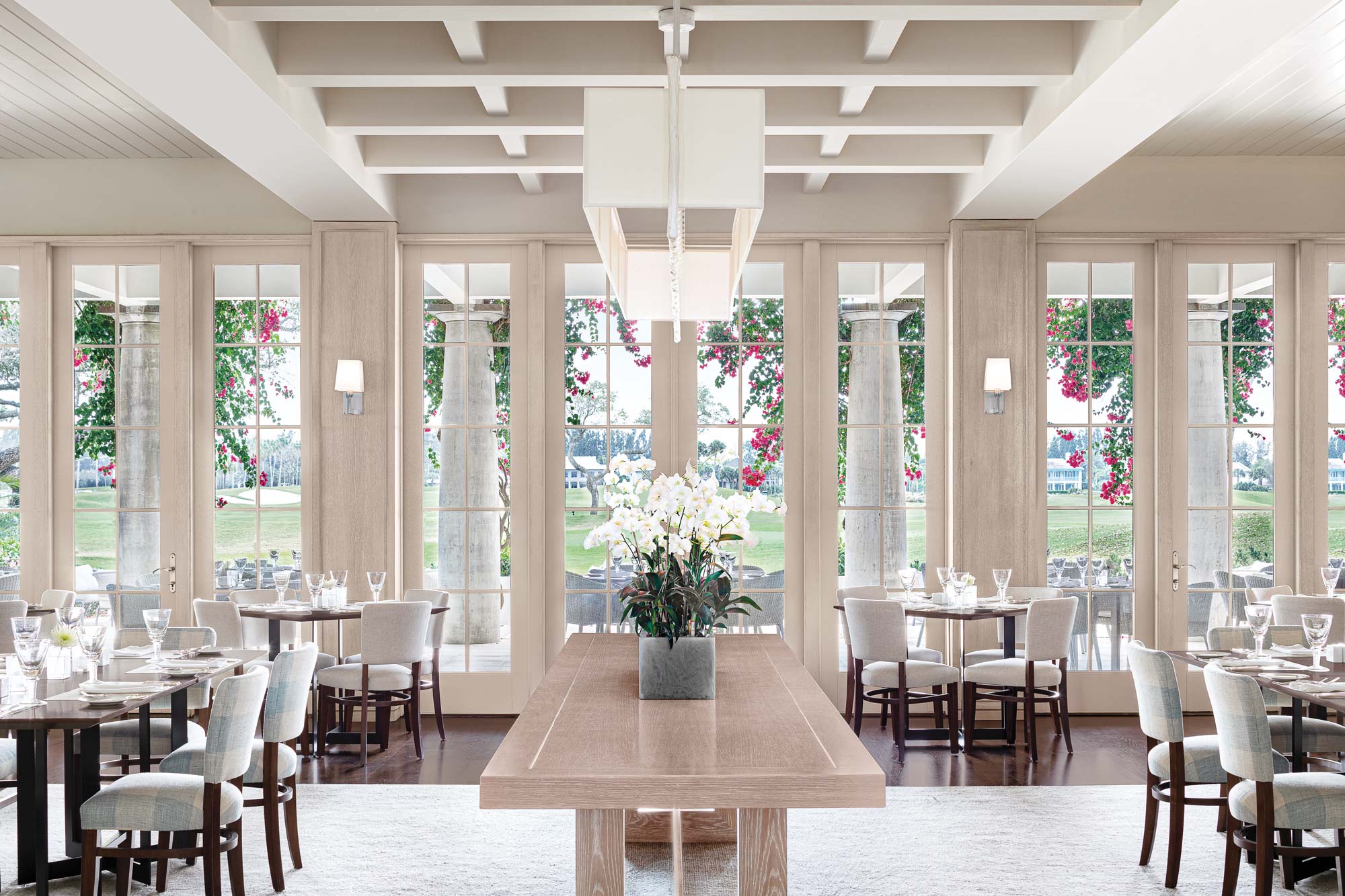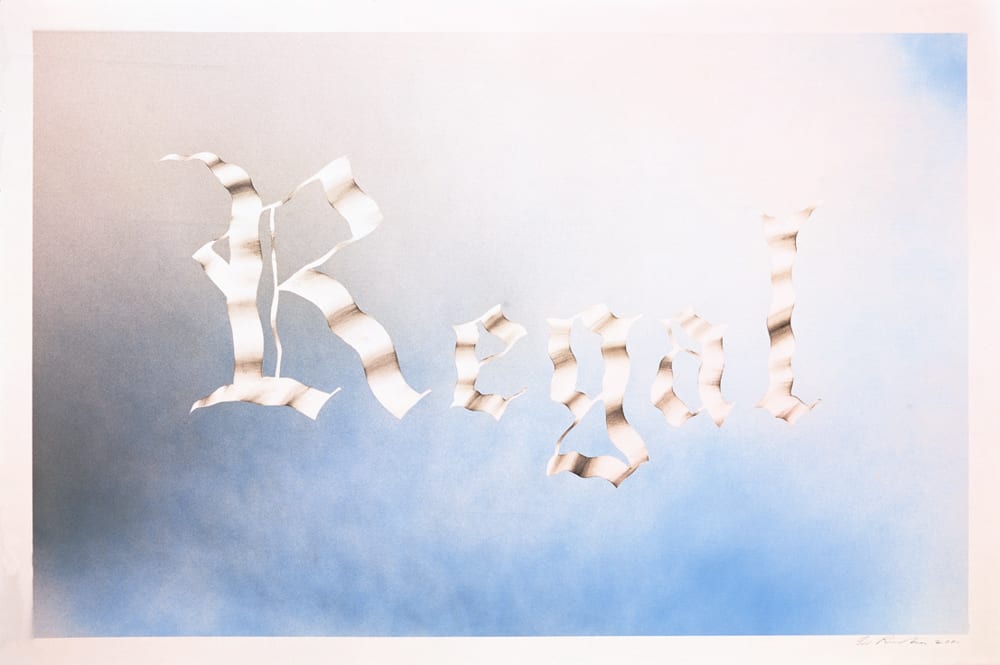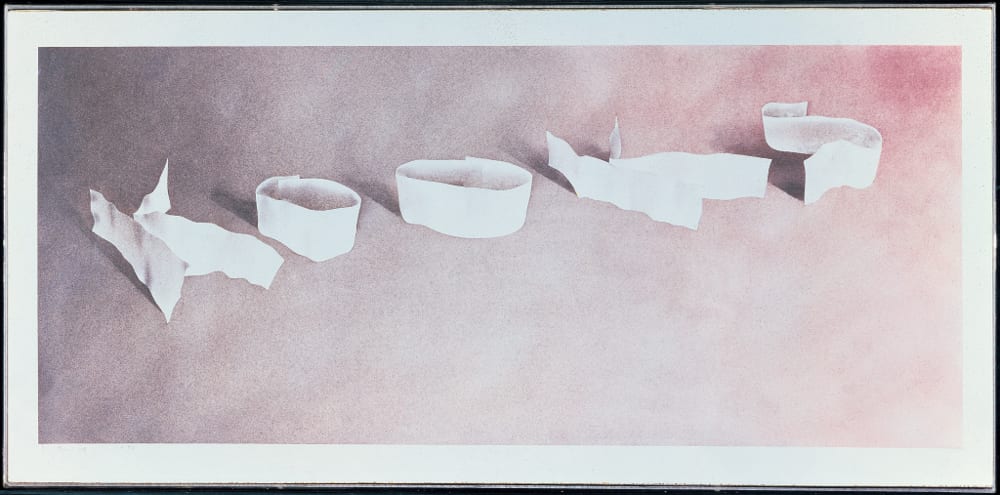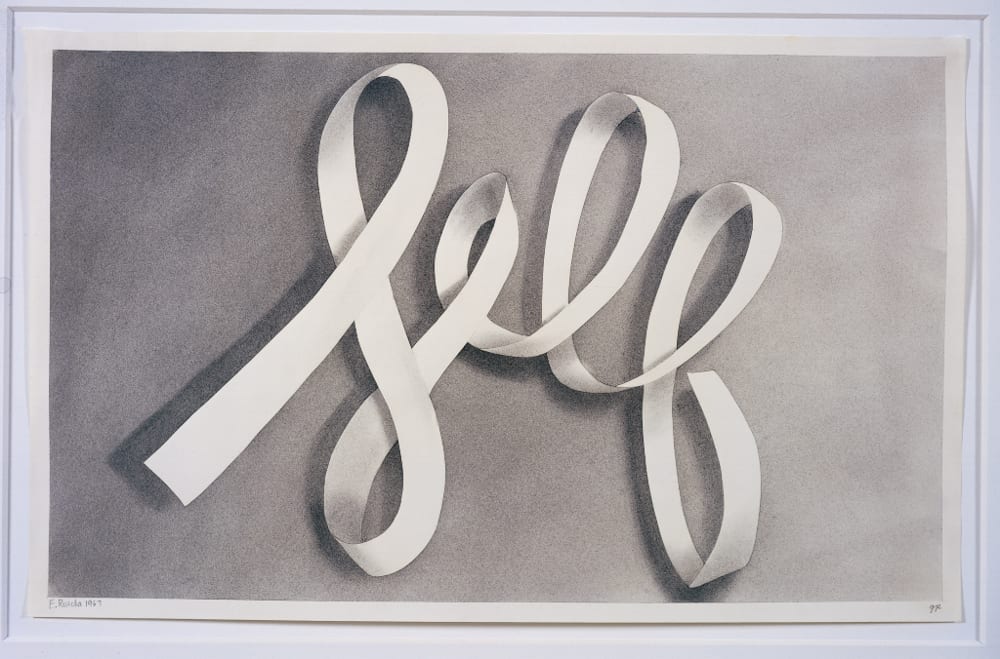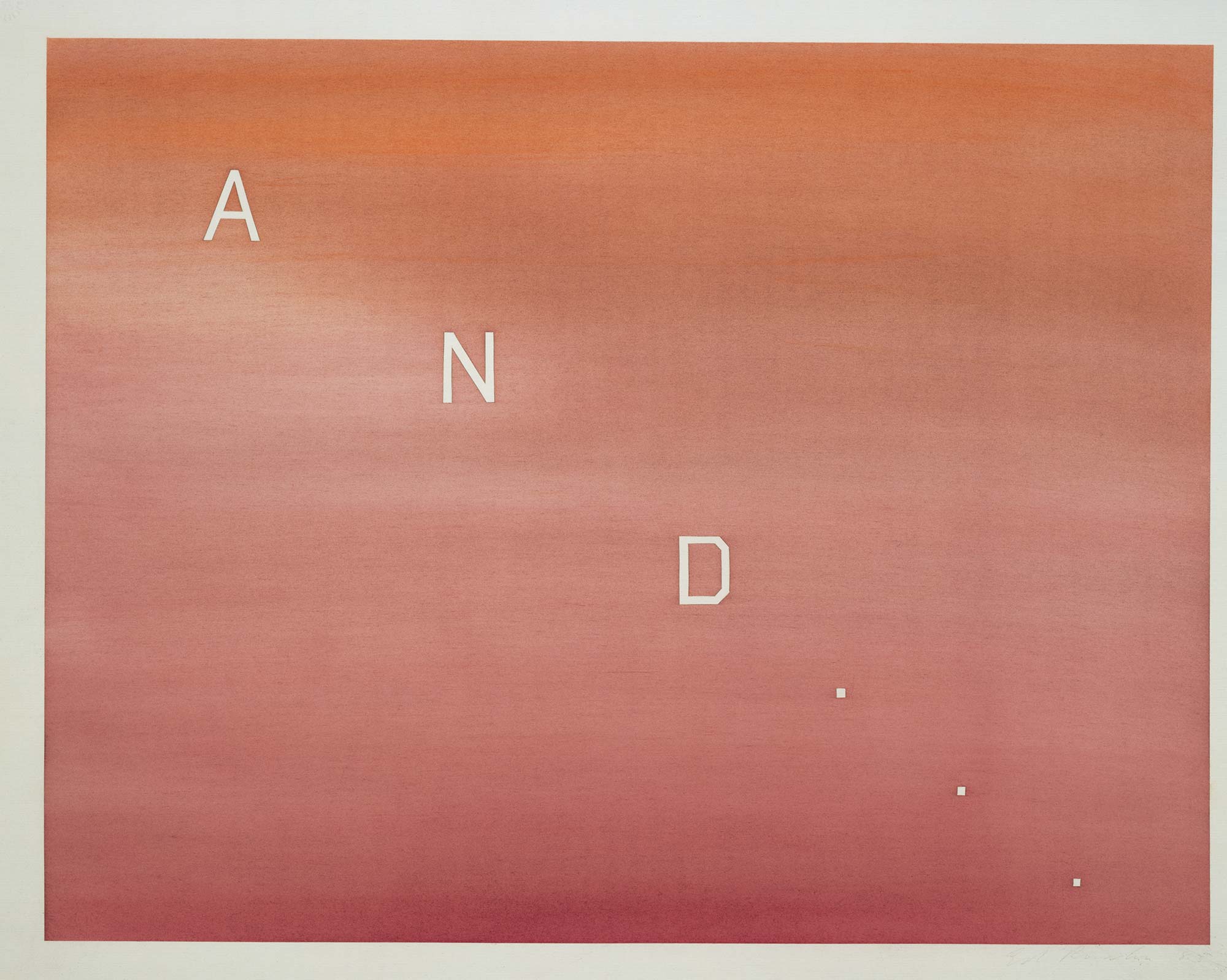Visitor Information
This exhibition is now closed.
There is no admission fee to visit The Gallery at Windsor. Exhibition visitors are invited to support The Windsor Charitable Foundation with a suggested donation of $10. This gift is tax-deductible and is designated to support local arts education.
About the Exhibition
In December 2003, The Gallery at Windsor opened its fourth exhibition featuring American artist Ed Ruscha. The exhibition titled The Drawn Word was curated by Olivier Berggruen, then the Associate Curator of the Schirn Kunsthalle Frankfurt. The exhibition focused on the California artist’s works on paper and included a selection of drawings and photographic work, including his gunpowder drawings from the 1960’s and 1970’s, as well as more recent work from the 1990’s.
Ruscha’s treatment of language, of signs and words, has been extremely influential for more than 50 years. His delicate use of a variety of media, from gunpowder to pastel, makes his work on paper some of his most important. In them, he comments on our relationships with certain words, employing their visual impact, sound and meaning, bringing all of these elements together via humor, among other tools. The work is distinctly American in its references to evocative places, like Hollywood, and in its bold, often monosyllabic style of communication. Appropriately, the design of The Drawn Word evidences a conceptual relationship to the work, incorporating layout grids in reference to Ruscha’s interest in commercial design, and phonetic translations of each of Ruscha’s words to emphasize the importance of sound in their choosing.
The exhibition was accompanied by a catalogue including an essay by Olivier Berggruen and foreword by Alannah Weston.
About the Artist
Ed Ruscha was born on December 16, 1937 in Omaha, Nebraska. His family moved to Oklahoma City, Oklahoma, in 1941. In 1956, Ruscha moved to Los Angeles, where he attended Chouinard Art Institute, from which he graduated in 1960. Ruscha’s early paintings attracted notice as part of the Pop art movement of the 1960’s; his art also has antecedents in Dada, Surrealism and Abstract Expressionism, and would be central to Conceptual art.
Ruscha’s early career as a graphic artist continues to influence his work. Through his drawings of words, he mingles his context of Los Angeles with motifs of language and landscape to communicate a particular urban experience. One of the most important American artists, he recognizes the effect the contemporary barrage of words and images has on our culture, and on our relationship with language.
His work includes paintings, drawings, prints, photographs, artist’s books and films, and is in the collections of major national and international museums. Ruscha lives and works in Los Angeles. He is represented by Gagosian Gallery.
Publication
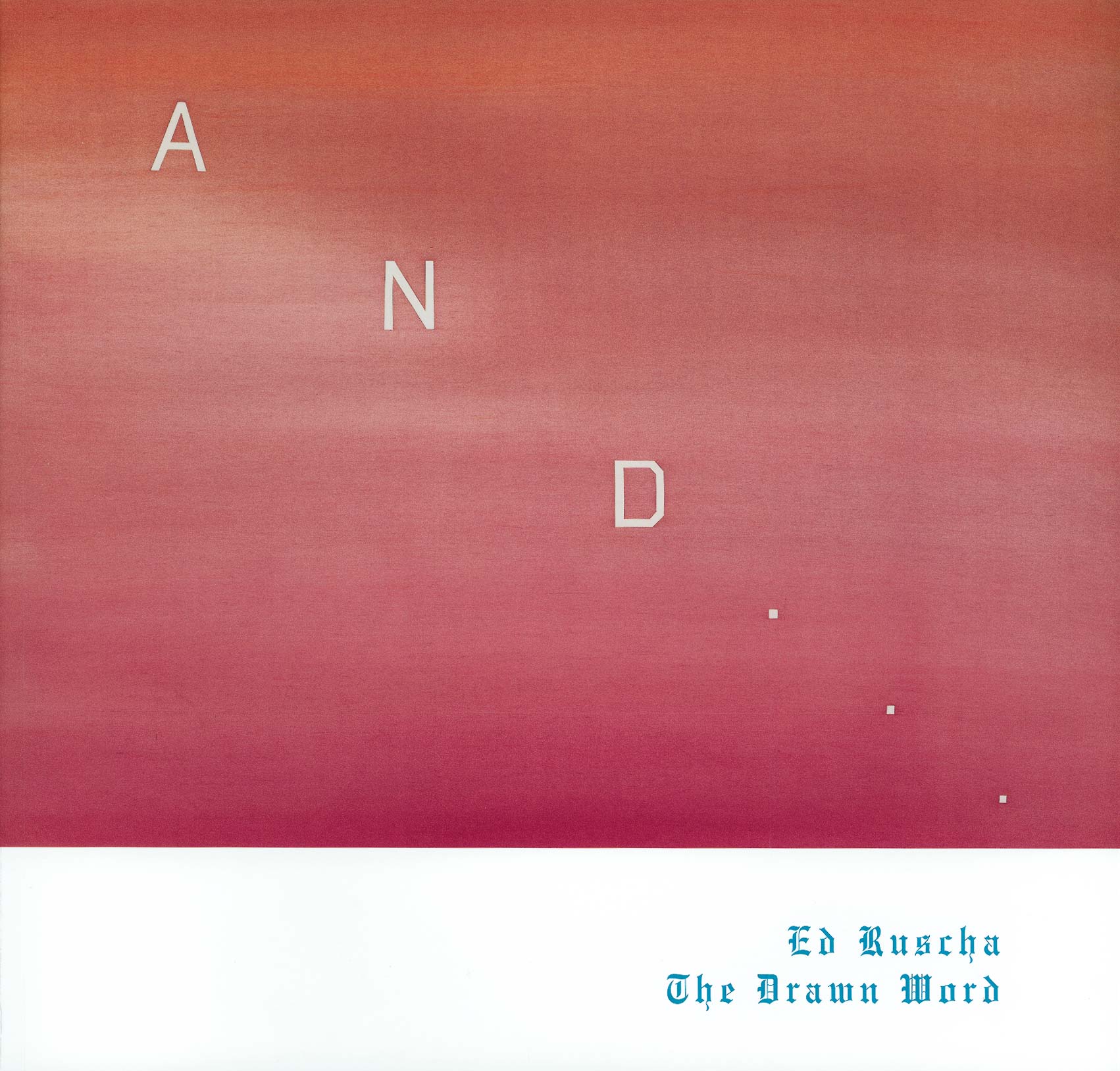
Ed Ruscha
The Drawn Word
ISBN 0-9746116-0-3, softback, 96 pages, 11 x 11.5 inches, published by Windsor Press.
Overview
The Drawn Word (December 7, 2003 – February 1, 2004) collects Ed Ruscha’s work on paper, from his gunpowder drawings of the 1960s and 1970s through his more recent work from the 1990s. Ruscha’s treatment of language, of signs and words, has been extremely influential over the last 40 years. His delicate use of a variety of media, from gunpowder to pastel, makes his work on paper some of his most important. In them, he comments on our relationships with certain words, employing their visual impact, sound, and meaning, bringing all of these elements together via humor, among other tools. The work is distinctly American in its references to evocative places, like Hollywood, and in its bold, often monosyllabic style of communication. Appropriately, the design of The Drawn Word evidences a conceptual relationship to the work, incorporating layout grids in reference to Ruscha’s interest in commercial design, and phonetic translations of each of Ruscha’s words to emphasize the importance of sound in their choosing.
This exhibition catalog includes an essay by Olivier Berggruen and foreword by Alannah Weston.
